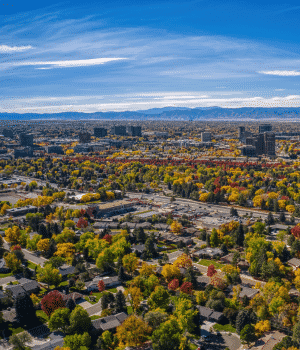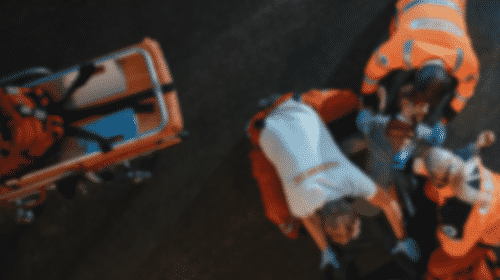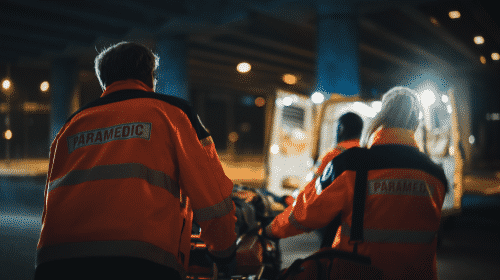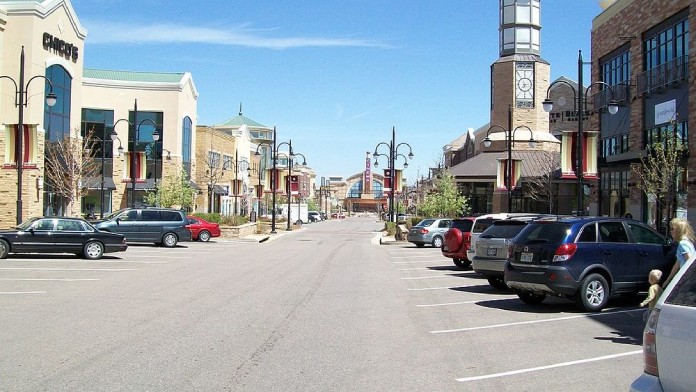Expert Insights
My heart was so happy to read that an abandoned building in Aurora that once operated as a liquor store is now an art gallery, giving local artists the opportunity to offer healing through art. As a state ravaged by addiction, particularly alcohol addiction, it seems poetic that the new East Colfax Art Gallery and Studio will give back to locals instead of taking away their health for profit. And what’s even better is that the art is local diverse voices that truly represent the people of Aurora — a place where over 90 languages are spoken. I think this is an innovative approach to tackling addiction: replacing alcohol with creativity and community!
~ Olivia Pennelle
How Expensive is Drug Rehab in Aurora?
 The cost of addiction treatment in Aurora will vary depending on several factors, such as:
The cost of addiction treatment in Aurora will vary depending on several factors, such as:
- The area and style of facility you choose
- The amenities and ancillary services you want
- What type of health insurance coverage you have, which will typically factor heavily in the facility you choose
There are plenty of options to choose from around town, regardless of your health insurance coverage and treatment needs.
Are There Low-Cost and Free Drug Rehab Centers in Aurora?
If you need help paying for rehab, check into state and local organizations that offer reduced prices or free programs. Many state-funded drug rehabs offer low-cost care to those that can’t reasonably afford treatment, increasing access to care and addressing barriers to treatment.
Does Insurance Cover Rehab in Aurora?
Yes, the Affordable Care Act (ACA) and Mental Health Parity and Addiction Equity Act set forth laws that require health insurance providers to cover the cost of substance use treatment.
Private Insurance
Private insurance, commonly most accessible through your employer, is an easy way to pay for rehab. Most centers work with popular providers such as United Health Group, Humana, Aetna, and Cigna. If you have private health insurance coverage in Colorado, the best way to find out your plan’s details and get referrals to local rehabs that accept your insurance is by calling the number printed on the back of your insurance card.
Medicaid
Medicaid is a government-funded health insurance plan created for low-income people without access to private insurance. You can qualify for Medicaid by income and family size. Reach out to your local department of health and social services to find out how to apply.
Medicare
Medicare, another federally-funded program, provides health insurance coverage to people who qualify by either age or disability. This plan is meant to provide health care resources to people who would otherwise not qualify for private insurance.
Does My Insurance Plan Cover Addiction Treatment?
Every insurance plan is different. One plan may pay for services that another won’t cover or may require you to seek an in-network alternative. Your health insurance card usually comes in the mail with a packet that covers your plan details. The provider also may have an online portal where you can learn about your coverage.
To find out what treatment centers near you accept your insurance—whether you have a private or publicly funded plan—is to call the number on the back of the card.
How Do You Pay for Addiction Treatment in Aurora?
According to the U.S. Census Bureau, over 90% of citizens have health insurance coverage.2 If you’re one of the majority with insurance coverage, then there is likely a multitude of rehab centers near you that can offer you services.
If you are among the 28 million people without insurance, however, there are alternative payment methods you can try.
Choose a Program that Offers Payment Plans: If you have to pay for treatment out of pocket, your chosen rehab program might be able to offer you a payment plan that splits up the cost of care into a series of affordable payments. The best way to find out if a rehab offers payment plans is by calling and asking.
Apply for a Rehab Scholarship: Some rehab programs offer scholarships as a very last resort to people who are uninsured and unable to self-pay for care. These scholarships could cover some or all of the costs, based on the facility’s decision. If you find yourself in extraordinary need of addiction treatment in Aurora and cannot pay, call around to the facilities around you and plead your case to the directors to offer you a rehab scholarship.
Find a Sliding Scale Rehab Program: Low-income individuals or those with a high financial burden, such as raising children, may be able to find a rehab program that offers a sliding fee scale. These programs provide services to qualified individuals based on factors including income and family size. Colorado drug rehabs with sliding scale fees typically advertise this on their website, though you could also call and ask.
How Does Aurora Compare in Alcohol and Drug Use?
According to 2020 data, four people die every day in Colorado from opioid overdose.9 However, local and state agencies joined forces to provide solutions for the residents struggling with addiction. Lawmakers are pushing to increase penalties for dealers who knowingly sell drugs laced with fentanyl.9 Additionally, there’s an impressive list of accredited alcohol and drug rehabs in Aurora, Colorado – 213 treatment centers, to be exact. And those Colorado rehab facilities stand ready to help you make positive change and embrace lasting recovery.
The Center for Disease Control (CDC) compiles data regarding the causes of death every year, including overdoses. These are listed by county. Aurora is a home rule municipality in the counties of Arapahoe, Adams, and Douglas counties. The majority of the population resides in Arapahoe County, with over 386,000 residents as of 2020.1 According to the CDC, Arapahoe County experienced:

An 87% increase in alcohol-related deaths between 2018 and 2020

25% more drug overdoses between 2018 and 2020

326 alcohol and drug overdoses occurred in 2020, an increase of 50%
This increase in drug– and alcohol-related deaths and overdoses highlights the need for access to high-quality addiction treatment in Aurora, Colorado. No matter your situation, there’s a program for you.
Alcohol and Drug Laws in Colorado
Due to the increasing number of drug and alcohol-related crimes and fatalities, the state has enacted measures to both combat substance abuse and support the community in the wake of a worsening situation.
Involuntary Admission for Substance Abuse Rehab Law: Also known as a “detox hold,” this law allows family members to have their loved one involuntary admitted to a drug rehab in Colorado for up to five days.3
Substance Abuse Treatment Medical Leave Laws: The federal Family and Medical Leave Act (FMLA) grants protection to qualifying employees who need to pursue drug or alcohol rehab in Colorado. Up to 12 weeks of unpaid leave are granted, with the guarantee that the employee can resume their former position or a similar position. Colorado and other states are also in the process of creating a paid medical leave bill.4
Colorado Harm Reduction Bill: Colorado’s Good Samaritan Law protects people from persecution when witnessing or experiencing an overdose and reaching out for emergency services. This bill includes needle exchange sites and Naloxone disbursement provisions. The law also extends to pregnant women if they disclose substance use and seek treatment.5
Opioid Prescription Regulations: A large aspect of Colorado’s harm reduction legislation is placing restrictions on doctors who prescribe Schedule II, III, and IV drugs to use an electronic transmissions system; opening up access to the Prescription Drug Monitoring Program; and heightening drug education requirements for health care providers and pharmacists.6
Douglas County Multiple Offender Program: Instead of serving long jail sentences, Douglas County residents who consistently commit crimes due to abusing alcohol may be eligible to enter the Douglas County Multiple Offender Program (DCMOP).7 This is an intensive outpatient program that lasts for at least one year, with the first three months spent in the county jail. Ongoing services include transdermal alcohol monitoring, case management, continuing drug and alcohol education, and Moral Recognition Therapy (MRT).
Choosing the Right Level of Care
Inpatient Rehab
Inpatient, or residential rehab, is a safe place to call home while you recover from your addiction. You receive round-the-clock care in a structured environment free from distractions and triggers. You’ll receive individualized treatment planning comprised of a myriad of treatment modalities, such as group counseling, individual therapy, family therapy, medication maintenance, medication-assisted treatment, drug education, relapse prevention classes, holistic activities, and more.
There are many factors to consider when selecting your Colorado drug rehab facility. Every rehab is different. Whether you find a program online or through a referral service, make sure to take note of the program philosophy as well as the setting. Make sure to check out their website and speak to an intake coordinator to find out about the available amenities and therapies they offer.
Partial Hospitalization Programs
Partial hospitalization programs (PHPs) and enhanced outpatient programs (EOPs) bridge the gap in service between residential rehab and outpatient counseling services. These programs are usually offered at various times throughout the day to offer flexibility. Participation is required for several hours a day, five to seven days a week. Also known as day services, PHPs provide the same structured environment and evidence-based therapy as inpatient rehab but allow clients to return to their homes every day.
Intensive Outpatient Programs
Intensive outpatient programs offer a step down from inpatient rehab. Participation is required several days a week. This can be done telephonically or live in the center, depending on your service plan. Outpatient programming focuses on re-building healthy bonds with yourself and your community; you’re re-learning life skills like critical thinking, anger management, stress relief, and drug education for relapse prevention. These programs typically use a combination of clinical therapy and group care.
Standard Outpatient
Standard outpatient programs are the least intensive option and typically involve just a few hours of treatment per week. They may be best for someone with high motivation to quit or someone who has already completed an inpatient treatment program or PHP.
To supplement outpatient care, many people also attend support group meetings, whether that be through AA, NA, or a non-12-step group like SMART Recovery, which focuses on behavioral rehabilitation through continued evidence-based therapy. There are also faith-based recovery groups where pastoral counseling and prayer are included in the curriculum.
Telehealth and Online Addiction Treatment
Telehealth is a range of rehab services that allow you to attend counseling from home. This adds an extra layer of convenience, providing access to people who don’t live near the drug or alcohol rehab in Colorado they need. Services can include:
- Individual phone and video meetings with doctors, counselors, and addiction specialists
- Group videoconferencing or teleconferencing for support groups and family therapy
- Ordering and receiving medication at home via secure deliveries
- Mental health and behavioral assessments through online portals
- Online case management services and coordination with legal agencies
Many Aurora drug rehabs provide telehealth care. If you’re curious about your chosen rehab’s telehealth policy, check out their website or give them a call and ask.
Medical Detox
Medical detox involves the use of medications and 24/7 medical care, oversight, and supervision to keep you safe during acute drug or alcohol withdrawal. Withdrawal can be life-threatening, especially if you are addicted to alcohol or sedatives, which is why medical detox is so important.
Different medications may be used to assist your detox process, depending on the substance you were using and what symptoms you need the most help with. These withdrawal medications may include:
No matter what your medical history, rehab facilities are equipped with certified healthcare staff to facilitate medication management and a safe recovery process.
Detox is only the first step in the recovery process. Many Colorado drug rehabs offer a continuum of care services that allow you to detox within the facility before moving to your residential room. It’s very important to continue with addiction recovery counseling after you finish detox; actual healing can happen only after you’ve been stabilized and in a substance-free state.
Finding Specialized Drug Rehab Centers in Aurora
If you’re looking for drug rehab in Aurora, CO, think about the type of environment that you want to recover in. It might be a good idea to find a treatment program that caters to the specific issues and passions of your demographic.
Veterans
Veterans tend to be at risk for addiction, given the tendency for there to be a traumatic past. Rehab programs for vets tend to offer dual diagnosis programs that can treat mental health disorders along with substance abuse disorders. These programs are highly likely to accept TRICARE military health insurance and offer financial assistance for those who have served.
LGBTQ+
Rehabs that specialize in treating members of the LGBTQ+ community provide a safe space for patients to recover from drug and alcohol addiction. Providers also understand challenges unique to this community, such as internalized homophobia and transphobia, family rejection, social exclusion, and discrimination.
Men-Only
Rehab programs for men offer a sense of community and brotherhood where it’s possible to open up and express your feelings that other settings may not facilitate. These programs may also offer sports or outdoor-based group activities in addition to evidence-based therapies and group and individual counseling.
Women-Only
Women’s only rehab in Aurora is made for women who may have a traumatic history with men or would rather heal in an environment where the pressures associated with a co-ed facility aren’t present. Colorado drug rehabs for women may provide space for childcare and offer family reunification programs.
Teen
A teenager’s struggle with addiction is marked by changes in their body and hormones combined with strained social and family relationships, an exorbitant amount of pressure from school, and fear for their future. Rehab for teens is designed to help them learn healthy coping mechanisms and provides appropriate outlets that are not substance use, such as sports, work, and equine programs.
Should You Travel to Colorado for Drug and Alcohol Rehab?
 If you love the great outdoors, you will probably enjoy a visit to the Centennial State. Between the Aurora Reservoir, the Morrison Nature Center, and the Quincy Reservoir, there is ample wide-open space for jogging, picnicking, and watching the clouds. Add to this the fact that Denver, less than a half-hour drive away, is full of attractions like zoos and aquariums. You’ll be sure to find plenty to do in and around Aurora.
If you love the great outdoors, you will probably enjoy a visit to the Centennial State. Between the Aurora Reservoir, the Morrison Nature Center, and the Quincy Reservoir, there is ample wide-open space for jogging, picnicking, and watching the clouds. Add to this the fact that Denver, less than a half-hour drive away, is full of attractions like zoos and aquariums. You’ll be sure to find plenty to do in and around Aurora.
Before moving to discover Colorado drug rehabs, call the number on the back of your card to make sure your insurance company can provide treatment there. You’ll also want to look into the best places to live and what laws affect Colorado citizens.
Neighborhoods in Aurora to Consider for Treatment
There are numerous gorgeous and highly-rated neighborhoods in Aurora. Aurora Highlands, east of the I-225, is full of fun natural places to explore and interesting dining establishments. Village East, on the west side of the highway, is close to dog parks, walking trails, and community pools, there is a wealth of addiction counseling services nearby.
Resources
- The City of Aurora. (2022). Population.
- US Census Bureau. (2021). Health Insurance Coverage in the United States: 2020.
- Colorado Department of Human Services. (2022). Substance Use Emergency Commitment/Substance Use Involuntary Commitment.
- Colorado General Assembly. (2021). State Paid Family and Medical Leave Laws.
- Department of Public Health & Environment. (2022). Colorado Public Health Harm Reduction Legislation.
- Colorado General Assembly. (2022). SB18-022, Clinical Practice For Opioid Prescribing.
- Douglas County. (2022). Douglas County Multiple Offender Program.
- Colorado Health Institute. (2022) A parallel epidemic: More overdose deaths in 2020, fentanyl fatalities spike.



